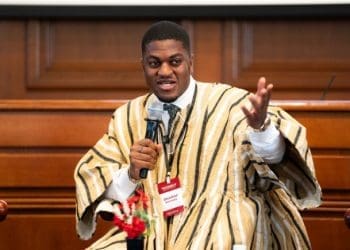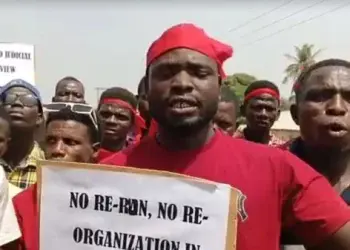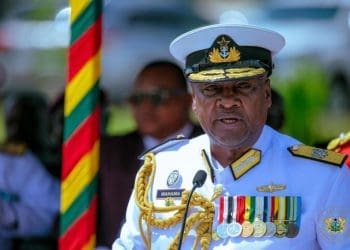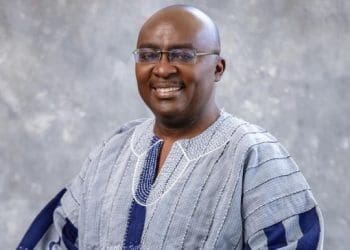President John Dramani Mahama and King Mswati III of the Kingdom of Eswatini reaffirmed strong bilateral ties between their two nations during a high-level meeting held at the Jubilee House in Accra.
The Eswatini monarch, who is on a four-day state visit at the invitation of President Mahama, was received with full ceremonial honours including a guard of honour, gun salutes, and traditional Ghanaian performances at the forecourt of the Presidency.
President Mahama warmly welcomed King Mswati, Queen Inkhosikati, and their delegation to Ghana, describing their visit as an important milestone in strengthening cooperation between the two African states.
“We wish to warmly welcome you to the country of freedom and justice,” the President said, referencing Ghana’s historic leadership in Africa’s independence and liberation movements.

Reigniting Nkrumah’s dream of African unity
President Mahama used the occasion to reflect on the legacy of Ghana’s founding father, Dr. Kwame Nkrumah, and the need for contemporary African leaders to realise the vision of continental unity.
“Our first President, Kwame Nkrumah, championed the cause of African unity. Though his dream wasn’t fully achieved in his lifetime, it is now our responsibility as today’s leaders to draw our countries even closer,” Mahama stated.
He noted that mechanisms like the African Continental Free Trade Area (AfCFTA) present modern opportunities to integrate African economies, facilitate trade, and foster sustainable development.
Ghana’s legacy and leadership
King Mswati III, in his remarks, congratulated President Mahama on his re-election in the December 2024 general election and expressed gratitude for the warm hospitality extended to him and his entourage.
The King acknowledged Ghana’s instrumental role in defeating colonialism and laying foundational frameworks for Pan-African cooperation.

“So many things have come out of Ghana. Many leaders who shaped our continent’s destiny emerged from here,” he said.
He praised Ghana’s contribution to the establishment of the Organisation of African Unity (OAU), which later evolved into the African Union (AU), an institution now focused on delivering “African solutions to African problems.”
Trade, culture, and people-to-people exchanges
Both leaders emphasized the need for enhanced collaboration in trade, investment, cultural exchange, and tourism.
King Mswati described AfCFTA as a vital platform to stimulate intra-African trade and reduce external dependency.
“It is high time we trade more among ourselves,” the King urged, adding that the two countries could benefit from information sharing and mutual support in areas like agriculture, infrastructure, and education.
He also highlighted the presence of a significant Ghanaian community in Eswatini, noting their positive contributions to the local economy and society.

“All of them are well-behaved, and they are contributing immensely to the development of Eswatini,” King Mswati remarked humorously, drawing warm applause.
Tributes to African diplomats and leaders
King Mswati paid glowing tribute to the late Mr. Kofi Annan, former United Nations Secretary-General, calling him a towering figure in global diplomacy.
He also commended Ghana’s former Foreign Minister, Madam Shirley Ayorkor Botchwey, for her appointment as Secretary-General of the Commonwealth.
“We were very proud of him, and now we are equally proud of her,” he said.

Formal agreements and forward outlook
The visit culminated in the signing of a Memorandum of Understanding (MoU) aimed at formalizing cooperation between Ghana and Eswatini.
Ghana’s Foreign Minister, Mr. Samuel Okudzeto Ablakwa, signed on behalf of Ghana, while Madam Pholile Shakantu, Eswatini’s Minister of Foreign Affairs and International Cooperation, signed for her country.
Vice-President Professor Naana Jane Opoku-Agyemang was also present at the meeting, underscoring the importance Ghana attaches to the state visit.

As part of his itinerary, King Mswati III is expected to travel to Kumasi where he will pay a courtesy call on the Asantehene, Otumfuo Osei Tutu II.












